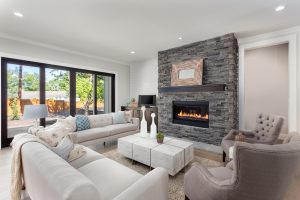It’s completely normal to be concerned about your home’s indoor air quality, especially if you have gas lines. Testing for carbon monoxide is important whether or not you actually have gas appliances, although active appliances do increase your risks. Gas lines can still leak and leave you breathing in harmful carbon monoxide gas even if they sit unused.
Even if you have carbon monoxide detectors in place, it is a good idea to schedule carbon monoxide testing in Yakima, WA regularly. Whether you are concerned about a faulty HVAC system or storing your cars in the garage during the winter season, our team can assuage your concerns and even offer tips for reducing the chances of carbon monoxide in your home.
Damage to Gas Lines
Aside from problems with any particular appliances, you also need to consider that the actual gas pipes themselves can get damaged. Even though they are largely out of sight, deterioration can still occur. Plus, if you’re doing any work around your home and accidentally damage a gas line, you may not realize it at first.
Natural gas does not have an odor, although some service providers do add one to make leak detection easier. You may hear a bubbling or hissing sound as the gas leaks out of the line under pressure, but you would have to be very close to the actual leak itself.
Potential Heater Problems
Heater problems can also lead to gas leaks. When you have a gas furnace, the heating cycles have to happen very precisely for them to be safe. If you hear a booming sound at the beginning of a heating cycle, that indicates too much gas is entering the chamber before the pilot light ignites.
The booming is a small explosion that adds pressure to the heat exchanger. Over time, this pressure can damage the heat exchanger to the point that carbon monoxide can leak out and into your clean air. Unless your service provider adds an odor as we mentioned above, the leak would be largely undetectable.
Staying Indoors More
The winter season often means that you stay indoors more often than not. You may also park your cars in the garage to keep them warmer. The downside to this is that pulling into your garage and closing it while your car is still running traps carbon monoxide fumes.
Keeping your home closed up in the winter season also reduces ventilation so that carbon monoxide fumes stay trapped for longer. It’s a good idea to get your air tested so that you know if levels are higher than average. Once we know where your indoor air quality stands, we can offer solutions like fixing your heater or installing an indoor air purifier to boost air quality.
Contact ThermAll Heating & Cooling, Inc: We are “Your Home Comfort Hero!”

